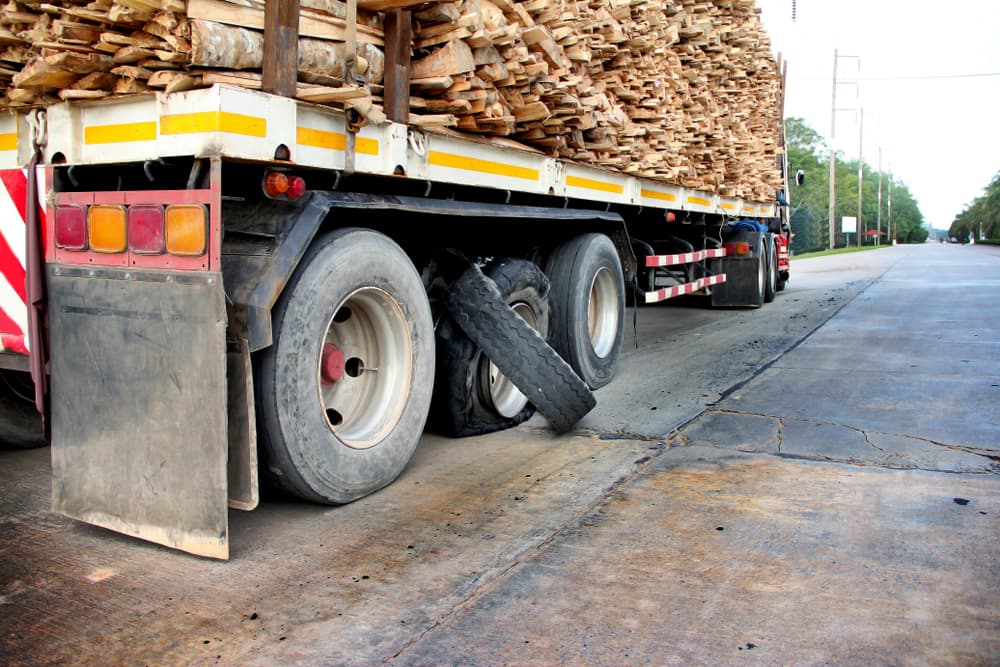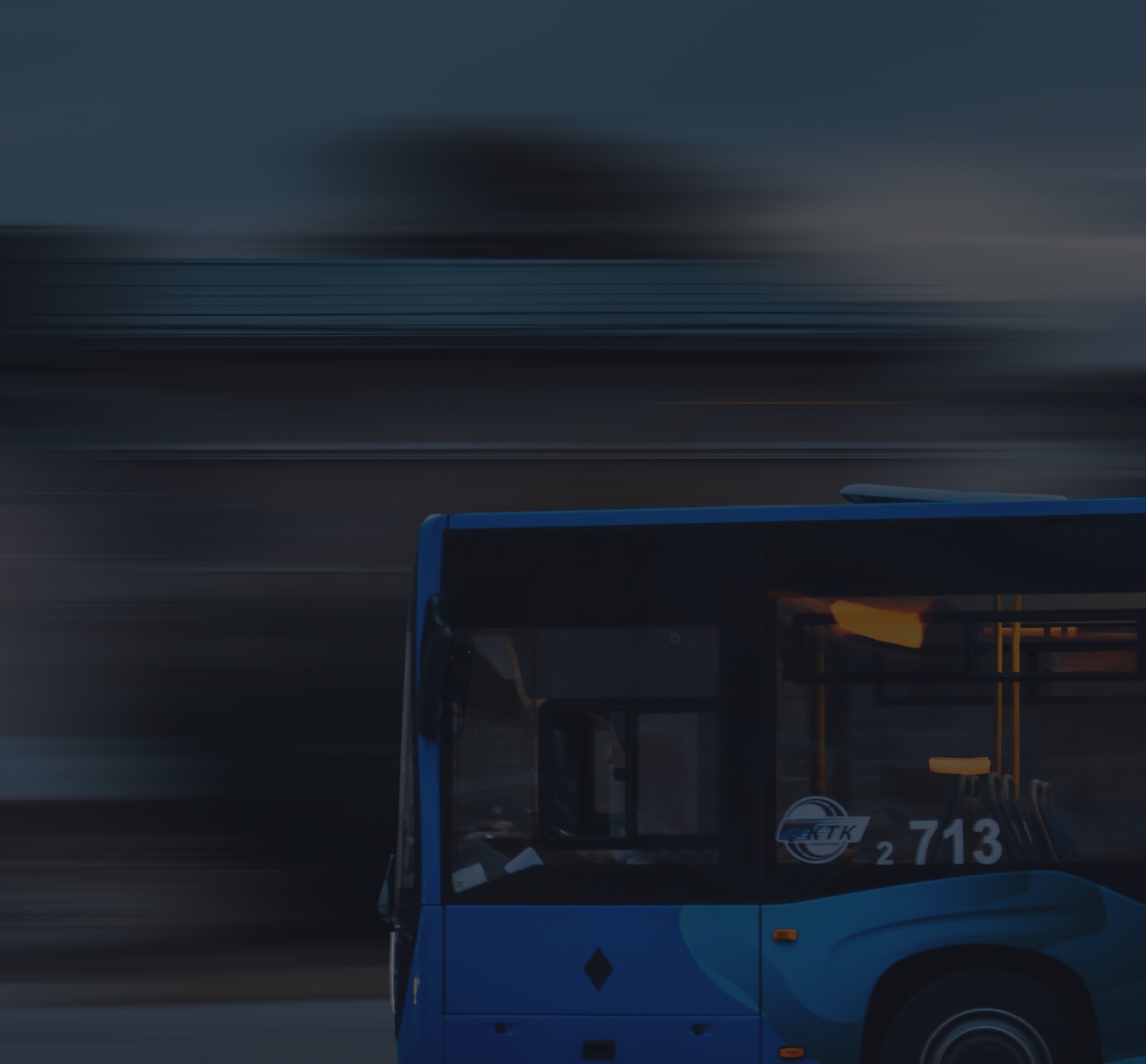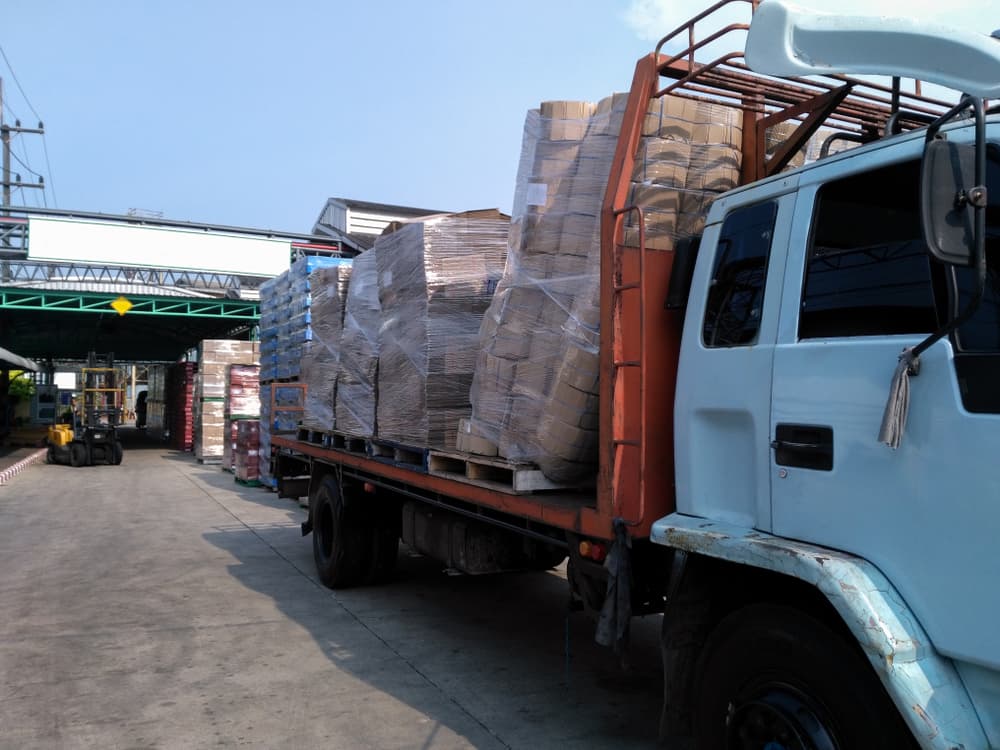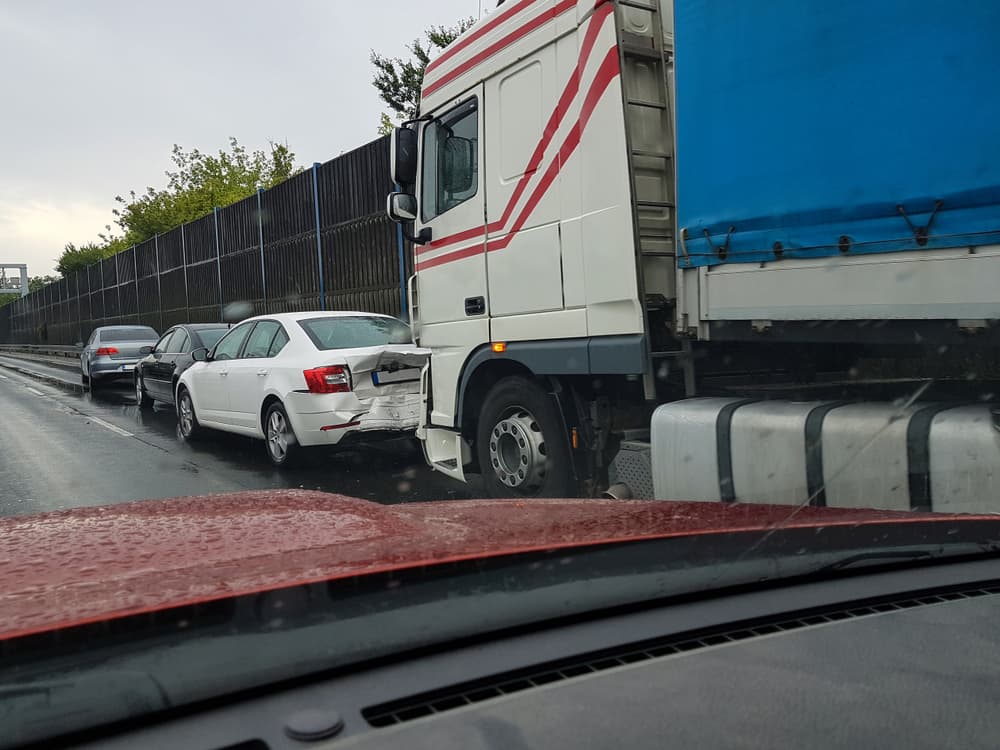Trucks are some of the biggest vehicles on the road. They can weigh up to 80,000 pounds when fully loaded – that’s as much as 20 cars! While most truck drivers operate their rigs safely, the immense size of semi-trucks means that accidents can cause serious injuries.
Truck accidents often lead to devastating injuries and major damage. After a crash involving a big rig, you need a lawyer who understands what happened and why.
A truck accident lawyer can investigate the collision to determine if the trucker or trucking company was at fault.
If a wreck with an 18-wheeler hurts you or a loved one, this information can help you take the first steps toward getting the assistance and support you need.
Key Takeaways
1. Jackknife Accidents
One of the most frightening types of truck accidents is called a jackknife. This is when a big rig folds up on itself, with the trailer swinging around to form a 90-degree angle with the cab. It looks just like a folding pocket knife, which is where the name comes from.
Jackknife crashes usually happen when a trucker slams on their brakes very hard and fast. This causes the trailer in the back to keep moving forward with a lot of momentum, even though the cab in the front has stopped. The trailer then swings out wildly to the side.
Several things can make a jackknife accident more likely to occur:
- Slippery, wet roads from rain or snow
- Uneven, top-heavy loads in the trailer
- Inexperienced or poorly trained truck drivers
- Speeding, especially around curves or turns
When a jackknife collision happens, the out-of-control trailer becomes a huge hazard on the road. It can smash into multiple vehicles, causing a pileup. In the worst cases, the truck may even flip onto its side or roll over completely.

2. Tire Blowouts
A tire blowout is when a tire suddenly pops and goes flat while the truck is moving. Huge loads and long hauls put big rig tires under enormous pressure. Over time, this strain can cause them to fail without warning.
A blown tire on a massive semi-truck can cause the driver to totally lose control in an instant. The vehicle may swerve back and forth across lanes or even overturn. This puts the trucker and everyone else on the road at major risk.
When a tire bursts apart, the rubber pieces go flying across the road. Other cars may have to veer out of the way to avoid running over the debris. This can easily lead to additional wrecks.
Tire blowouts are especially hazardous on highways, where vehicles are traveling at high speeds. Drivers have very little time to react safely if a truck’s tire suddenly explodes in front of them. By the time they see the debris, they cannot get out of the way.
3. Wide Turns
Driving an enormous 18-wheeler through a turn requires a lot of skill. Many intersections and city streets are tight squeezes for a truck that size. Truckers often have to swing extra wide to get around the corner.
This maneuver is called a wide turn. The trucker first steers to the left to give the lengthy trailer enough clearance. Then, they cut the wheel back to the right to complete the turn without hitting the curb or any obstacles.
Wide turns can catch other motorists and pedestrians by surprise. Most people expect a vehicle to stay in its own lane during a turn. When a big rig veers into oncoming traffic, others may not realize what’s happening until it’s too late.
Another problem is blind spots. Trucks have large areas around them that the driver can’t see from their cab. When a semi swings out during a wide turn, nearby vehicles can quickly disappear into these blind spots.
Pedestrians and cyclists are at high risk during truck turns too. They may assume it’s safe to cross in front of a truck that’s waiting at a light or stop sign. However, once the rig starts moving, a person can easily get trapped between the massive vehicle and the curb with nowhere to go.


4. Truck Rollovers
A rollover is one of the worst things that can happen to a big truck. This is when the entire vehicle tips onto its side or roof and skids across the road. Rollovers often result in catastrophic damage and severe injuries.
There are several reasons a truck might roll over:
Taking a Curve or Exit Ramp Too Fast
When a truck driver takes a curve or exit ramp too quickly, it can be very dangerous. Trucks are much taller and heavier than regular cars, which means they have a higher center of gravity. This makes them more likely to tip over if they turn too fast.
Imagine a glass of water on a tray. If you walk slowly and carefully, the water will stay in the glass. But if you start running or turning suddenly, the water will slosh around and might spill out. It’s the same idea with a big truck. If the driver goes too fast around a curve, the cargo inside the trailer can shift to one side, making the whole vehicle unstable.
To avoid rollovers, truck drivers need to slow down before curves and ramps. They should always check for posted speed limits and warning signs. It’s better to take a little extra time than to risk a serious crash.
Swerving or Overcorrecting Suddenly
Swerving or overcorrecting happens when a truck driver makes a sudden, sharp turn of the steering wheel. This can happen for lots of reasons, like trying to avoid an obstacle in the road or getting distracted behind the wheel.
Sudden moves can easily cause a big truck to lose control. The trailer in the back might swing out, causing a jackknife accident. Or the whole vehicle could roll over onto its side.
Overcorrecting is especially dangerous. This is when a driver steers too far in the opposite direction after swerving or drifting. For example, let’s say a trucker accidentally veers onto the right shoulder. If they yank the wheel back to the left too hard, the truck might shoot across the highway and crash.
Truck drivers need to stay calm and steer gently if they get into trouble. Jerking the wheel usually just makes things worse. Truckers should also avoid distractions and keep their eyes on the road at all times.
Unbalanced Cargo Loads That Shift to One Side
Cargo that isn’t loaded properly can move around inside the trailer while the truck is moving. This can throw the whole vehicle off balance, making it harder to control.
Imagine trying to walk while carrying a big, heavy backpack. If the weight is evenly distributed, you can probably manage okay. But if all the books and supplies shift to one side, it will pull you off balance and make you stumble.
It’s the same with a tractor-trailer. If the crew stacked the cargo too high or heavy on one side, it can make the trailer lean or sway. This is really dangerous when the truck turns or brakes.
Trucking companies and loaders have to follow strict rules about weight limits and cargo securement. They need to make sure the load is balanced from side to side and front to back. Cargo also has to be tied down tightly so it can’t slide around inside the trailer.
If a truck rolls over because of a shifting load, you can hold the company responsible for negligence. An experienced truck accident lawyer can investigate to see if the crew loaded the cargo unsafely.

Hitting a Curb, Pothole, or Soft Shoulder
Hitting a curb, pothole, or soft shoulder can suddenly cause a truck driver to lose control. These road hazards can jolt the steering wheel right out of the driver’s hands or cause the tires to blow out.
Semi-trucks have a lot of ground clearance, which means there’s extra space between the underside of the vehicle and the road. This is necessary for navigating uneven surfaces, but it also makes trucks more prone to rollovers.
When a truck hits a curb or pothole, it can bounce the trailer high into the air. If the jolt is strong enough, the whole rig might tip onto its side. Potholes are especially jarring because the tire falls into the hole and then pops back out again abruptly.
Soft shoulders are another big hazard. That’s the area on the side of the road that’s not paved. If a truck drifts onto the shoulder, the wheels may sink into the dirt or gravel. The driver can easily overcorrect and lose control while trying to steer back onto the road.
Truckers need to constantly scan ahead for potholes, debris, uneven pavement, and other potential problems. It’s not always possible to avoid them, but slowing down gives the driver more time to react safely. Trucking companies should also keep their vehicles well-maintained to reduce the risk of a tire blowout or mechanical failure at a critical moment.
5. Rear-End Crashes
Rear-end collisions are another type of truck crash. They happen when a big rig hits the back of the car in front of it. The devastating impact often causes debilitating injuries and fatalities.
Semi-trucks need a lot more distance to stop compared to passenger vehicles. When fully loaded, a tractor-trailer traveling 65 miles per hour takes the length of two football fields to stop. If traffic slows down or stops suddenly, even an alert trucker may be unable to brake in time.
Due to their massive weight, trucks have incredible momentum behind them. Occupants of smaller vehicles often suffer catastrophic injuries to the head, neck, spine, and internal organs.
Rear-end truck accidents also frequently result in chain-reaction pileups that damage many vehicles. When a semi plows into traffic from behind, it can push the vehicle in front of it into the next one, and so on. The destruction can quickly ripple through multiple cars and trucks.

6. Underride Crashes
An underride accident is one of the deadliest collisions a passenger vehicle can have with a big truck. This is when a smaller vehicle rear-ends a semi and actually slides underneath the trailer. Many underride accidents result in fatalities.
There is a big height difference between the bottom of a trailer and the top of most passenger vehicles. If a car hits the back of a semi and keeps going, the trailer may shear the roof right off. It can peel the top of the vehicle away like a tin can lid.
Underride accidents also occur from the side. This can happen if a car is next to a truck that’s making a turn or changing lanes. If the car can’t stop in time, it may get pinned underneath the trailer as it swings across the lane.
Trucks are supposed to have special guards on the back and sides to prevent underride crashes. However, many trucking companies fail to install these critical safety devices. Others use guards that are weak, rusted out, or poorly maintained.
The legal muscle you need to win
7. T-Bone Collisions
A T-bone accident is when the front of one vehicle rams into the side of another, forming a “T” shape. Also called broadside or side-impact crashes, T-bones are one of the worst types of wrecks you can have with a big truck.
T-bones often happen at intersections when a trucker runs a red light or stop sign. The semi may barrel into cross-traffic, demolishing smaller passenger vehicles in its path. When a massive truck smashes into the side of a car, the results are often catastrophic.
Since most of a vehicle’s safety features are in the front and back, the sides are especially vulnerable. A hard impact can crush the passenger compartment, severely injuring anyone sitting on that side. Many T-bone accidents result in traumatic brain injuries, crushed limbs, paralysis, and death.
Contact a Truck Accident Lawyer
If you or someone you love has been hurt in an accident with a tractor-trailer, you may recover compensation. Truck crashes are complex cases that require thorough investigation by an experienced attorney. A personal injury attorney will dig deep to uncover negligence by the trucker or trucking company.
Contact a knowledgeable truck accident lawyer today for a free consultation. An attorney will fight to get you the full compensation you deserve for your injuries and suffering.



